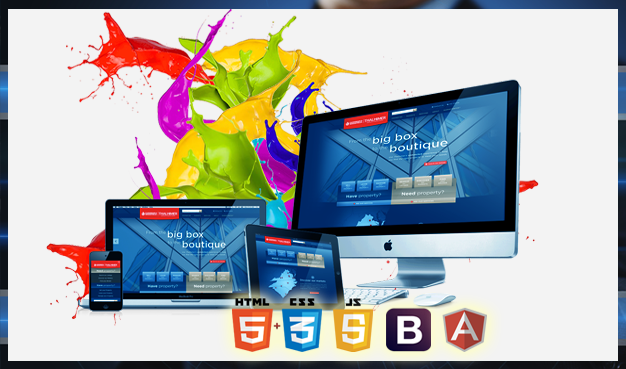- Have any questions?
- (Prasad) +91 96191 46851 | (Parag) +91 99878 20022
- support@pnpwebdesign.com
Shopify Tutorial for Beginners: Embarking on Your E-commerce Journey

WordPress SEO : Unlocking the Digital Doorway
November 12, 2023
Shopify Store: Your Gateway to E-commerce Success
November 13, 2023Shopify Tutorial for Beginners: Embarking on Your E-commerce Journey

In today’s digital era, e-commerce has emerged as a powerful force, enabling individuals and businesses to reach a global audience and showcase their products and services. Shopify, a leading e-commerce platform, has simplified the process of creating an online store, making it accessible to even those with limited technical expertise. This comprehensive tutorial will guide you through the essential steps of setting up your Shopify store, empowering you to embark on your e-commerce journey with confidence.
1 Creating Your Shopify Account: Laying the Foundation
Before diving into the intricacies of building your online store, it’s crucial to establish a Shopify account. The process is simple and straightforward, requiring only basic information such as your email address, password, and store name. Once you’ve completed the registration process, you’ll be greeted by a user-friendly dashboard, your gateway to the world of e-commerce.
2 Choosing Your Theme: Setting the Tone for Your Store
First impressions matter, and this holds true even in the digital realm. Your store’s theme is the visual foundation that will shape your customers’ perception of your brand. Shopify offers a vast selection of free and premium themes, catering to a diverse range of industries and styles. Explore the available themes, keeping in mind your brand’s personality and target audience.
3 Adding Products: Bringing Your Inventory to Life
The heart of any e-commerce store lies in its products. Shopify makes it easy to add and manage your inventory, ensuring your customers have access to a wide variety of items. To add a product, simply provide clear and concise descriptions, high-quality product images, pricing information, and any relevant variants.
4 Organizing Your Products: Creating Collections and Menus**
With a growing inventory, organization becomes paramount. Shopify allows you to create collections, grouping similar products together to enhance browsing and navigation. Additionally, you can establish a clear and intuitive menu structure, guiding customers seamlessly through your store’s various offerings.
5 Payment Gateways: Facilitating Secure Transactions**
Providing a secure payment gateway is essential for building trust with your customers and ensuring smooth transactions. Shopify integrates with a variety of popular payment gateways, such as PayPal and Stripe, enabling you to accept payments securely and conveniently.
6 Shipping and Delivery: Getting Your Products to Customers**
Once a customer has placed an order, it’s time to get their products to them. Shopify offers a range of shipping options, allowing you to set shipping rates based on location, product weight, and other factors. You can also integrate with popular shipping carriers to streamline the fulfillment process.
7 Customization and Branding: Making Your Store Your Own**
Shopify empowers you to personalize your store, reflecting your brand’s unique identity. You can customize colors, fonts, layouts, and other visual elements to create a cohesive and appealing brand experience.
8 Marketing and Promotion: Reaching Your Target Audience**
With your store up and running, it’s time to spread the word. Shopify provides a suite of marketing tools, including social media integration, email marketing campaigns, and search engine optimization strategies, to help you reach your target audience and drive traffic to your store.
9 Analytics and Insights: Measuring Your Success**
Data is the lifeblood of e-commerce, providing valuable insights into customer behavior and sales trends. Shopify’s built-in analytics dashboard allows you to track key metrics, such as website traffic, conversion rates, and customer demographics, enabling you to make informed decisions and optimize your store’s performance.
10 Customer Support: A Helping Hand Along the Way**
As with any new venture, challenges may arise. Shopify’s dedicated customer support team is available to assist you with any questions or issues you may encounter, ensuring you have the guidance you need to navigate the e-commerce landscape successfully.
Conclusion: Embracing the E-commerce Journey with Shopify
Shopify has revolutionized the e-commerce landscape, empowering individuals and businesses to establish their online presence and connect with a global audience. Shopify are user-friendly interface, comprehensive features, shopify tutorial and unwavering support, Shopify provides the tools and resources you need to embark on your e-commerce journey with confidence.
Remember, success in e-commerce is a continuous learning process. Shopify tutorial embrace the challenges, celebrate the milestones, and continuously refine your strategies to achieve your e-commerce goals.
Additional Resources
- Shopify Help Center: https://help.shopify.com/
- Shopify Community: https://community.shopify.com/
- Shopify Blog: https://www.shopify.com/blog
I hope this blog post is helpful. Please let me know if you have any other questions.




